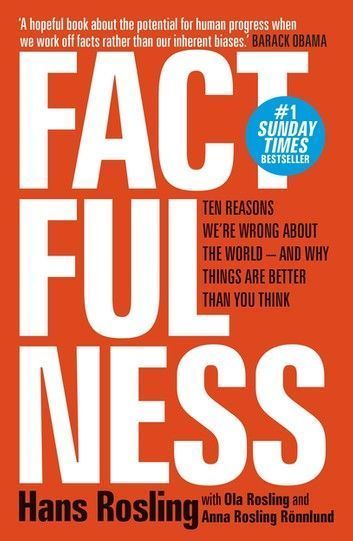
Factfulness Ten Reasons We're Wrong About The World - And Why Things Are Better Than You Think
'One of the most important books I've ever read - an indispensable guide to thinking clearly about the world' BILL GATES 'A hopeful book about the potential for human progress when we work off facts rather than our inherent biases' BARACK OBAMA The international bestseller, inspiring and revelatory, filled with lively anecdotes and moving stories, Factfulness is an urgent and essential book that will change the way you see the world, and make you realise things are better than you thought. *#1 Sunday Times bestseller * New York Times bestseller * Observer 'best brainy book of the decade' * Irish Times bestseller * audiobook bestseller * Guardian bestseller *
Reviews
Rahul Rajeev@rahulrajeev
Mark Palfreeman @markpalfreeman
Sarah Schumacher@smschumacher
Bouke van der Bijl@bouk
Madhuri jain@madhuri_jain
Hannah VG@haenschen_klein
HsinJu@hsinju
Carla Schwarze@carlaschwarze
Mário Rodrigues@mariorodrigues
Cem Temir@cemt
Far From Impossible Blog@jtse
Stef Hite@stefhite
Satyajeet Pal@readerpal
Peter Unruh@peterunruh
Sameera@sameera
Todd Prauner@tuddball
Jimmy Cerone@jrcii
Pavan Kumar@pavanp
Ahmed El-Helw@ahmedre
Ryan B Harvey@codeanddata
Todd Gagne@dakotashine
Kevan Lee@kevanlee
booksandanni @booksandanni
André Nóbrega@anobrega85